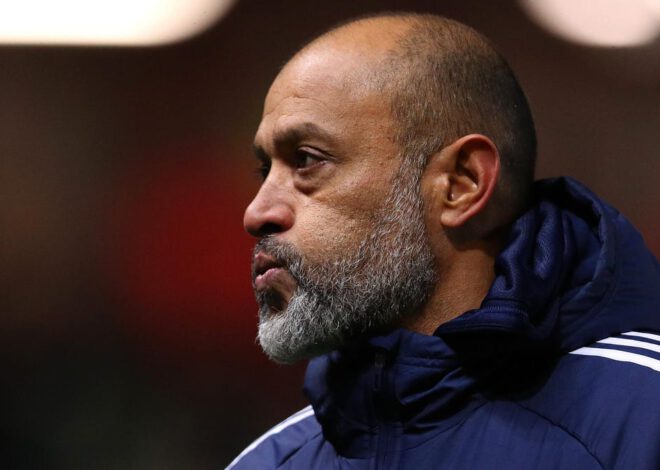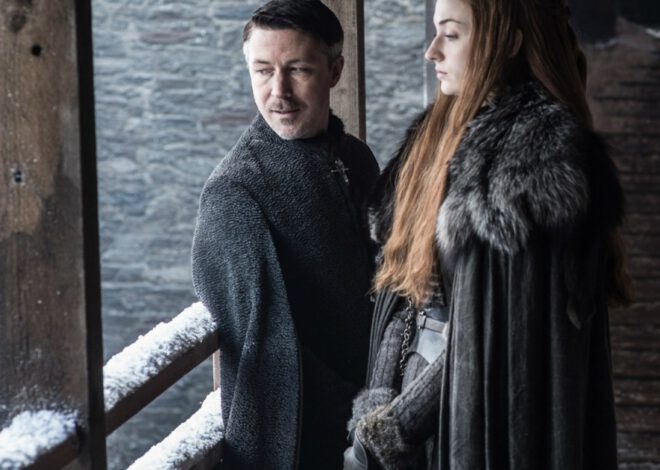1923 review: Harrison Ford and Helen Mirren lead intriguing Yellowstone prequel | Television
Of all the super-producers in television, Taylor Sheridan has perhaps the strongest affinity for grandeur. His ever-expanding universe of shows – nine within the year, almost all solely written by him – concern such expansive themes as generational inheritance, the maintenance of realm, and the defense of hard-won values, land and family. His magnum opus, Paramount’s Yellowstone, is the most-watched linear TV show in America behind NFL football. It is best described not as a “red-state show” or “Republican Succession” (too simple and condescending for Yellowstone’s muddled politics) but as a soap opera about property rights: between the mega-ranch-owning Dutton family, long-displaced Indigenous people, and the gentrifiers/coastal elites whose land development threatens a pastoral way of life.
Sheridan’s latest star-studded Yellowstone prequel, 1923, extends the same ethos back in time, to a limbo era between the wars and before the Depression, between the pre-prequel limited series 1883 and Kevin Costner’s gravelly modern patriarch. Epic sensibilities abound from the jump: “Violence has always haunted this family,” says the voiceover of Elsa Dutton (Isabel May), the fiery pioneer daughter of the Dutton ancestors John and Margaret (played by the country superstars Tim McGraw and Faith Hill) in 1883. She’s following up a cold intro, after Cara Dutton (Helen Mirren) wins a reloading war and kills an unidentified man. Cut to another unidentified man barely escaping a lion’s pounce – “and where it doesn’t follow we hunt it down, we seek it”.
Enter the grizzled visage of Jacob Dutton (Harrison Ford, in his first major TV role, at age 80), his twitching frown framed by canyon-deep lines, his cowboy hat crawling with locusts. He gazes from atop a horse across a field dotted with decaying cattle, swarmed by flies; over-grazing, drought and pestilence already portend the Dust Bowl. As Elsa relays in clunky albeit informative voiceover, Jacob moved to Montana years ago to save his brother’s family after John’s death, and built an empire. A century before Costner’s twilight-era political machinations on Yellowstone, it’s already crumbling.
Much of 1923’s hour-long premiere – the only episode made available for review – is similarly expository, stage-setting ambitiously disparate pieces that will presumably come together for a Sheridan-esque power struggle amid panoramic mountain vistas. The director Ben Richardson (a cinematography veteran of several Sheridan series, including Yellowstone) takes the landscape appreciation global, with several gorgeous shots of the African savanna. One puzzle piece involves Jacob’s nephew/adopted son, Spencer (Brandon Sklenar), a first world war veteran dodging PTSD by tracking murderous big game (and showing off the American cowboy’s stoic, brashly physical brand of masculinity) for uppity British colonizers in Kenya.
Stateside, Ford’s patriarch is pressed by local discontent and mismanagement of the land. One of Sheridan’s strongest gifts as a storyteller is imbuing potentially arcane land rights disputes with emotional urgency. When the English American shepherd Banner Creighton (Jerome Flynn, AKA Game of Thrones’s Bronn) argues with Jacob (leading the Montana Livestock Association, of course) about the legitimacy of range boundaries if his flock is starving, it has the utmost moral stakes. This is, as I said, a soap about property rights – “stealing a man’s grass is like stealing another man’s steer,” says a reliably grim Jacob after the conflict gets violent. In the world of 1923, the illicit cut of a barbed-wire fence for sheep is a legitimately tense emotional climax.
The bulk of Ford’s screen time goes to this convincing-enough embodiment of moral authority in the not-as-wild west; his sandpaper gravitas is already more compelling than Costner’s. Save her brutal opening salvo, Mirren’s Irish-accented Cara is confined in the premiere to the role of chastened, world-weary ranch wife. Mirren is overqualified for Cara’s speechifying on the bargain that is the “way of life”, which skews cliched and corny (it’s a minefield of personal sacrifice without a day off, though “you will be free in a way that most people cannot conceive”). But I would watch her do it five more times, and not just to east coast-educated Elizabeth (Michelle Randolph), furious after Cara’s nephew Jack (Darren Mann) postpones their wedding on account of starving cattle.
The most fraught and intriguing of the various plotlines, however, involves a Catholic-led indoctrination school for Indigenous girls. It is also by far the hardest to watch – the sadistic nun Sister Mary (Jennifer Ehle) beats young Teonna (Aminah Nieves); the even more menacing Father Renaud (Sebastian Roché) beats them both. How much violence inflected on Indigenous characters is too much to drive the point home? What is the line for humiliation, however based in devastating historical fact? A question I’m concerned about for later episodes. Given Yellowstone’s dubious record on gratuitous violence against Indigenous female characters, I have more faith in Nieves’s performance, anchoring and undaunted in just a handful of scenes, than in the show’s handling of forced assimilation.
It’s hard to evaluate 1923 beyond that point – based on a single hour out of two eight-episode seasons, there are some promising set-ups, some beautiful vistas, a few compelling characters. The premiere achieves the rough emotional outlines of an epic – the feel of sweeping ambitions – without much specificity of feeling, yet. But there are more reasons than not, especially if you root for Ford and Mirren as elder statesmen of the screen, to watch more.


